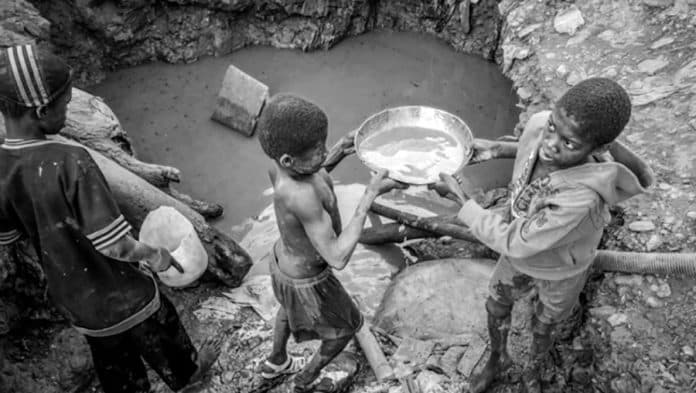Historical Background, Statistics and Effects of Child Labor in Tanzania (2011 Findings)
In 2011, the United Republic of Tanzania made moderate progress in its efforts to eliminate the worst forms of child labor. The government of Zanzibar passed the Children’s Act, banning child labor and activities that prevent children from attending school. In addition, the Revolutionary Government of Zanzibar empowered Zanzibar labor officials to prosecute child labor cases. In addition to a number of policies and programs that fight child labor in Tanzania, the country began working with UNICEF in 2011 on the Joint Country Program which
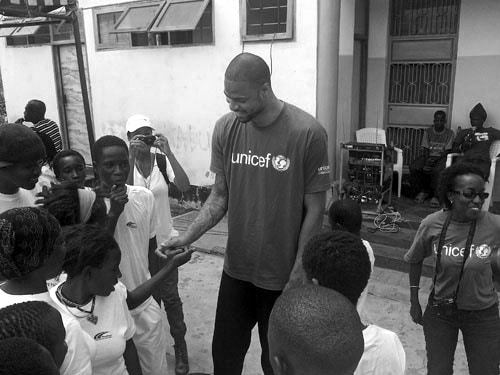
includes a section on child labor. Despite these efforts, a comprehensive list of dangerous activities banned for children has not been implemented on the mainland or in Zanzibar. The Government’s child labor committee also failed to meet in 2011. Children continue to engage in the worst forms of child labor in Tanzania mainly in hazardous agricultural and fisheries activities.
Prevalence and Sectoral Distribution of the Worst Forms of Child Labor in Tanzania
The United Republic of Tanzania (Tanzania) includes mainland Tanzania and the islands of Zanzibar which are self-governing in some respects. Children in Tanzania are involved in the worst forms of child labor, most of which are agriculture and fishing. In mainland Tanzania, children grow coffee, hemp, timber, tea and tobacco. In Zanzibar, they work in clove production. In agricultural work Children use very dangerous tools, and thus endanger themselves when they use pesticides and chemical fertilizers, and carry heavy loads. Reports also show children are involved in the production of rice, seaweed and sugarcane. Children, especially boys, tend livestock.
Children in Tanzania are involved in fishing including Sangara fishing. They can be susceptible to diseases due to stagnant water and injuries caused by sticking to nets and cleaning fish with sharp tools. Children in fishing camps can also are being affected by sexual violence.
Children work with their hands in mines and quarries. Children carry heavy loads and use dangerous tools to crush stones. Children mining tanzanite mines work without safety equipment and are affected by crime, drugs and alcohol in mining areas. Some children are also involved in sex work in mining camps. Zanzibar children are reported to be making gravel and can use sharp tools to carve stones.
The girls are hired as domestic servants. They are sometimes forced to work long hours and may suffer physical and sexual abuse. Girls who run away from abusive families can be used as prostitutes. There is a large number of street children in Tanzania. Children working on the streets are at risk of adverse weather, road accidents and crime. In urban areas, they may get injuries from scratching scrap metal and other items to sell. Children selling food and other items on the street are at risk of being attacked by rapists. Some children may be forced to beg or commit crimes with adults. Children who work as prostitutes in the markets are said to be beaten, deprived of food and carry goods for long distances. Along the Tanzanian-Kenyan border, Tanzanian children are seen working as cattle ranchers and in motorcycle repair shops.
In Zanzibar, children work in the tourism industry as guides, street vendors and hotel cleaners. They work long hours, and girls hired as cleaners have been harassed through prostitution. Children in mainland Tanzania are also being harassed in sex tourism in hotels along the shores of the Indian Ocean. Girls especially are at risk of sexual assault. Girls can also work as maids, serving alcohol until nightfall and sometimes fall into the business of sexual harassment.
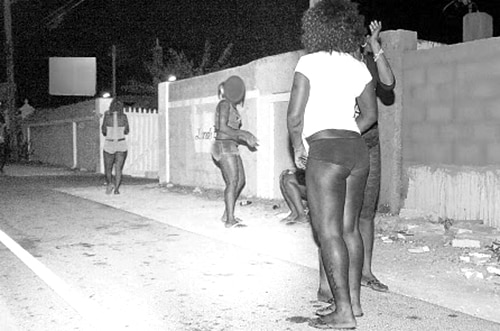
Illegal human trafficking and sexual harassment trade is a problem in Tanzania. Particularly poor rural children are being trafficked to domestic labor for forced labor and sexual exploitation. Some Tanzanian girls are forced into prostitution in tourist areas and forced into domestic work and childcare. Children are trafficked to neighboring countries, Europe and the Middle East for domestic and sexual work. Children from Burundi, Rwanda and Uganda are being trafficked to Tanzania to work in fishing, domestic service, agricultural work and sexual abuse, which involves prostitution in brothels.
Rules and Regulations on Worst Forms of Child Labor in Tanzania
The Constitution of Tanzania states the laws that apply throughout the United Republic; labor laws are not among them. Therefore, mainland Tanzania and Zanzibar have different legal administrations that regulate child labor. Mainland Tanzania is facing the Employment and Labor Relations Act no. 6 2004, which prohibits employment for children under the age of 14, except in the case of light work, and prohibits minors under the age of 18 from working in hazardous conditions. The law also imposes criminal penalties on anyone who illegally enslaves children or forces them to work. The Children’s Act of 2009 reconciles all continental laws concerning children. The law prohibits child labor in exploitative labor in the formal and informal sectors and prohibits forced labor of children, children working in hazardous labor, and child sexual abuse. The law defines child labor in Tanzania as one that deprives a child of his or her health or development, which exceeds six hours a day, and / or is unfit for his or her age. The law does not include a full list of hazardous activities that children in mainland Tanzania are barred from performing. Although this Act applies, it lacks a monitoring system and regulations that allocate responsibilities and responsibilities to government ministries responsible for enforcing them.
Zanzibar Employment Act No. 11 prohibits child labor, including the worst forms of child labor. However, it does not include a list of dangerous work prohibited for children. In 2011, the Zanzibar Children’s Act was signed into law. It prohibits child labor in Tanzania as a country and any work that would impede a child’s ability to attend school. This law is similar to the Continental Child Act of 2009; however, no information was obtained in its implementation.
The government maintains a list of high-risk types of work, which were updated to include provisions from new child labor laws and to
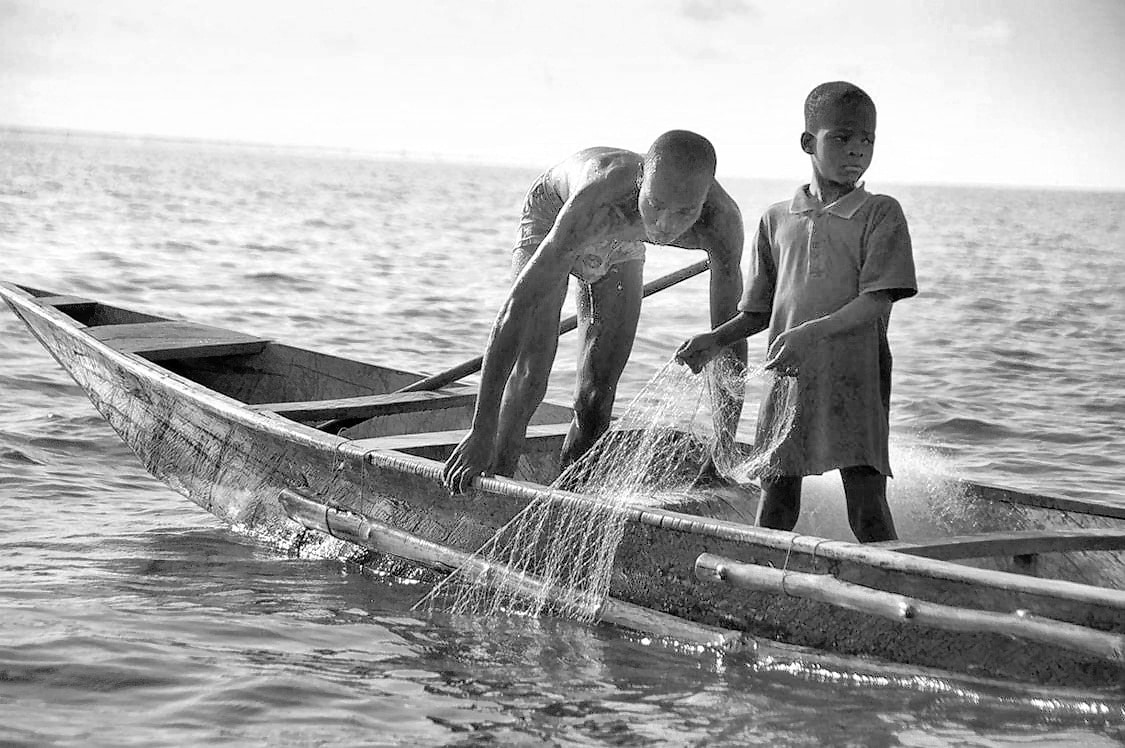
incorporate risky activities into fisheries and other specific sectors, including those identified in a recent forced labor survey in the country. However, the list has not been announced in government or by law, as it is still awaiting confirmation from the Ministry of Labor.
The Sexual Offenses Act and its Provisions Act 1998, which applies to mainland Tanzania, include the penalty for buying a minor under the age of 18 for sexual harassment, public display of promiscuity, or sexual intercourse. The Penal Code also punishes those who engage in prostitution. The Zanzibar Penal Code also includes provisions relating to the worst forms of child labor.
The Prevention of Trafficking in Persons Act of 2008 applies to mainland Tanzania and Zanzibar. The law covers all aspects of human trafficking and considers child trafficking to be “absolutely bad business,” a criminal offense and its penalties are heavier than those of adult trafficking.
Compulsory enrollment of minors under the age of 18 in the military is prohibited by law. Tanzania has an age of voluntary employment for 18-year-olds, although children between the ages of 16 and 17 can volunteer with parental consent. It is not clear whether children between the ages of 16 and 17 can engage in warfare and, therefore, it is not clear whether this law complies with the provisions of ILO Convention 182. Legally, education on the mainland and Zanzibar is compulsory for children up to the age of 15. However, students or their parents are required to contribute funds to finance school feeding programs as well as the construction of classrooms and the provision of teachers’ houses. These requirements may prevent some children from attending school. In addition to the Mainland and Zanzibar legal frameworks for child labor, some districts have introduced child labor restrictions in their local government laws.
Institutional Mechanisms for Monitoring and Enforcement
PMORALG – The Prime Minister’s Office – Regional Administration and Local Government is the major force in strengthening domestic structures to eliminate child labor in Tanzania. Committee members include government ministries and non-governmental organizations. District level agency report on the spread of child labor and child labor interventions in rural and district levels to PMORALG. However, the existing regional governments between the district and national levels are not involved. The committee met only one time during the reporting period.
In mainland Tanzania, the Ministry of Labor and Employment (Ministry of Labor) is responsible for enforcing child labor laws. As a leading agency of child labor in Tanzania, the Ministry of Labor works closely with the Ministry of Community Development, Women and Children, the Ministry of Home Affairs, the Ministry of Education, the Ministry of Agriculture, and the Ministry of Health and Welfare of Social, including PMORALG.
The Ministry of Labor has a separate child labor unit, which had a budget of US $ 29,000 in the reporting period. The Ministry of Labor has a total of 80 labor officers in mainland Tanzania. Each region also has one or more labor officers responsible for enforcing labor laws, including those related to child labor. Labor officers are not present in every district. The Ministry of Community Development, Gender and Children and the Ministry of Health and Social Welfare are responsible for district community development officers and social welfare officers who monitor child labor at district and village levels and report results to PMORALG.
The Ministry of Labor, Economic Empowerment and Cooperatives Zanzibar is responsible for enforcing child labor laws on the islands. The Employment Commission, under the Ministry of Labor, is responsible for matters relating to labor inspections. The Zanzibar Ministry of Social Welfare and Youth Development is responsible for all aspects of child protection and has established a separate Child Protection Unit.
On the mainland and in Zanzibar, the police are investigating cases of child labor reported at police stations, and sometimes, they refer them to work officers or ask for help from social welfare officers. Cases of child labor in Tanzania are usually resolved by district courts, and children involved in exploitative work are referred to social welfare officers for services and support. While district courts have jurisdiction over child labor cases, the mainland Commission for Conciliation and Mediation is responsible for other types of labor violations and may also mediate and remedy child labor violations that have been reported to them or may refer them to the courts of districts. Distance and travel costs to district courts may prevent rural residents from submitting their grievances. The regulations passed in Zanzibar this year include the provision for the establishment of a Zanzibar Dispute Resolution Unit to mediate labor disputes in the same manner as the Mainland Tanzania Mediation and Arbitration Commission. However, there is no indication of when the unit will be fully operational. During the reporting period, staff officers deployed by the Office of the Director of Public Prosecutions (DPP) Zanzibar receive training and prosecution authority in Zanzibar. These officers did not deal with any child labor cases during the reporting period.
For 2011, there were no statistics showing the number of cases of child labor in Tanzania, neither violations, or prosecutions.
In December 2011, the Ministry of Home Affairs officially inaugurated the Secretariat and the Anti-Trafficking Committee on Human Trafficking, replacing the Ministerial Emergency Committee on Human Trafficking, which fought for the implementation of the 2008 Anti-Trafficking in Persons Act. The Secretariat is responsible for promoting, clarifying, and coordinating policies to curb human trafficking. The Secretariat did not meet during the first four months of 2012, but its members worked together online to create a National Anti-Trafficking Initiative in Tanzania.
The Ministry of Home Affairs is responsible for enforcing anti-trafficking laws. The Interpol International Criminal Office within the police force involves the role of the officer responsible for the human trafficking. The police also have their own desk dealing with human trafficking. Despite these opportunities, no budget has been allocated for activities to support efforts to combat human trafficking. New police officers, detectives, and prosecutors are receiving training on child labor and human trafficking. However, training is said to be inadequate as many police officers are still unaware of anti-trafficking laws and laws related to child labor in Tanzania. Child trafficking cases can be reported through the Interpol Office and Non-Governmental Organizations (NGOs).
Reports did not indicate whether child trafficking was conducted in 2011. In addition, no charges related to child trafficking were made during the reporting period. No indictment was found on the trafficking of children.
Government Policies on Worst Forms of Child Labor
The National Action Plan for the Elimination of Child Labor in Mainland Tanzania (2009) identifies key stakeholders and ministries responsible for child labor interventions. The plan proposes strategies to reduce poverty, child protection and monitor child labor in Tanzania. It also calls for capacity building on child labor laws and an evaluation of efforts to combat the worst forms of child labor. Zanzibar also has a National Action Plan for the Elimination of Child Labor (2009). The initiative authorizes the Zanzibar Child Labor Steering Committee, headed by the Permanent Secretary to the Office of the Chief Minister and comprises senior officials from various agencies responsible for child labor, to provide policy guidance on national action plans. The Zanzibar Steering Committee is exchanging information with the National Sector Inter-Coordination Committee for Mainland Tanzania. District labor officers oversee the implementation of national action plans in private districts in mainland Tanzania and Zanzibar, in collaboration with education officers, social welfare officers, and women and children’s welfare officers. The Government of Tanzania has signed an MOU with the Government of Brazil to prepare a plan for the implementation of the National Action Plan for the Elimination of Child Labor in Tanzania.
The National Strategy for Growth and Reduction of Poverty II (NSGRP II) contains provisions to improve literacy rates, encourage out-of-school children to go to school, promote children’s rights, and provide social protection interventions to help vulnerable people, which may include families of working children. Zanzibar’s Strategy for Economic Growth and Poverty Reduction (2010-2015) includes several specific activities to reduce child labor, including providing support for the reintegration of children out of child labor back to the education system. It encourages district officials to develop simplified versions of child labor education information, establish child labor regulations at the district level, and strengthen the system of inspection and enforcement of child labor laws. There are no reports on whether these activities have been budgeted for or implemented. These poverty alleviation initiatives are intended to contribute to the Government of Tanzania’s National Development Vision 2025.
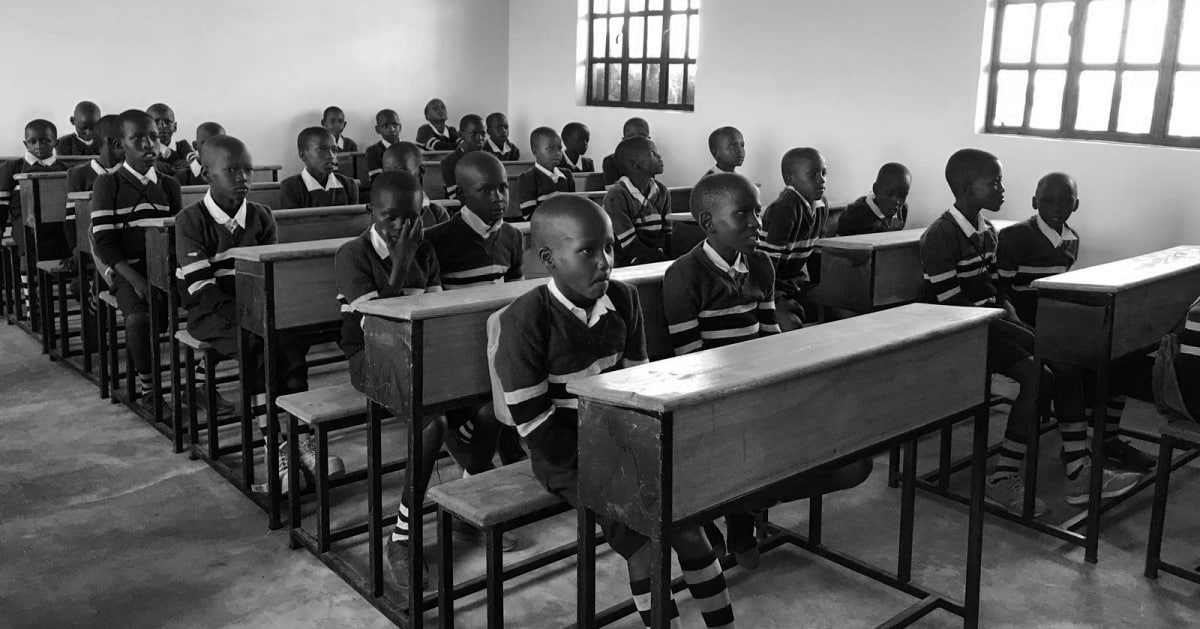
Several Government policies focus on child labor. During the reporting period, the National Costed Plan of Action for Most Vulnerable Children 2007-2010, which includes children labor workers among children at high risk, is being implemented until the new plan is finalized. The 2007 National Employment Policy calls on Governments and partners to provide guidelines and employment programs for children; The Child Development Policy of the United Republic of Tanzania aims to eliminate the worst forms of child labor; and the Zanzibar Child Protection Policy supports the Government’s commitment to the Convention on the Rights of the Child. In addition, the National Social Protection Framework identifies child labor as a mechanism to deal with economically vulnerable families and proposes strategies to improve sustainable livelihoods.
Children who are involved in or at risk of becoming involved in child labor in Tanzania are identified by the most Vulnerable Children’s Committees, which operate at ward and village levels. Child employment committees also exist in some districts. The districts are governed by the District Child Labor Employment Framework in Tanzania, which outlines the strategic approach to district action against child labor. Districts integrate child labor into budgets and district development programs, and many do so by promoting enrollment and retaining children in primary education and targeting vulnerable households in poverty reduction programs.
No information was available on the status of the Ministry of Community Development, Gender and Child Action Plan to Combat Child Sexual Abuse Business 2010.
The Primary Education Development Program (PEDP) and PRSP eliminated primary school fees in Tanzania. However, additional school-related costs increase the risk of children becoming involved in more serious forms of child labor in Tanzania.
The government has considered training as a way to tackle child labor in Tanzania and to formulate policies and institutions to support these efforts. The Zanzibar Vocational Education and Training Policy (2005) promotes the training and preparation of young people for government and private work. The Education Program administered by the Ministry of Education assists adults and children who have dropped out of school. The Tanzania Mainland Primary Education and Training Program (COBET) targets working children and has included child employment components in its curriculum. The Vocational Education and Training Authority provides skills and entrepreneurship training to rural communities and includes employment goals for children. The Tanzania Secondary Education Development Program (SEDP) and the Tanzania Primary Education Development Program (PEDP) also contributed to the increase in school enrollment. The question of whether these programs had an impact on child labor has not been addressed.
Social Programs to Eliminate or Prevent Worst Forms of Child Labor in Tanzania
The Government continues to implement the 2025 Time Bound Program on the Elimination of Child Labor and with the support of the ILO, has given priority to child labor for the good work of the Tanzania Program. USDOL is currently funding a $ 1.71 million project, “Strengthening the Labor Law Compliance”, which supports the audit of part of ILO’s child labor projects in the country. Tanzania is also working with other UN agencies to address child labor. The UNICEF-backed Country Program (2011-2015) recognizes child labor in Tanzania as a barrier to education and focuses on efforts to achieve universal primary education in the country. The government is also working with UNICEF to address the issue of violence against children, which could affect working children. Government efforts to provide a secure and sustainable social protection system are supported by the United Nations Program.
The government supports several programs implemented by NGOs to combat child labor in Tanzania. These programs include the PROSPER program, which tackles the sources of child labor and strengthens local and national structures to effectively liberate tobacco-producing children in targeted districts. The government also supports the provision of income-generating activities, educational materials, and other social services as part of the Jali Watoto program. In addition, the Government supports EU-funded projects, the fight against child labor in Zanzibar, the elimination of the worst forms of employment in the eight mining districts of Geita District, and the Zanzibar Women Empowerment Program, which removes children from child labor and sends them back to school. At the regional and policy level, the Government of Tanzania is participating in the East African Police Chiefs Cooperation Organization to strengthen regional cooperation and capacity among East African law enforcement authorities.
The East African Regional Plan covers 13 countries: Burundi, Comoros, Djibouti, Eritrea, Ethiopia, Kenya, Madagascar, Mauritius, Rwanda, Seychelles, Somalia, Tanzania, and Uganda, and is funded at $ 38 million from UNODC and other partners. This initiative includes increased coordination of activities that assist in combating human trafficking. The government has promoted nationwide enrollment in primary education, which involves community mobilization and increased budget allocation to local administrators to ensure that enrollment applies to children from poor, vulnerable families. The National Economic Empowerment Fund supports efforts to reduce poverty at the regional and district levels, through rural financial institutions. The Tanzania Social Action Fund provides grants and money transfer programs to vulnerable people, including children. However, the question of whether this fund, together with the Government’s basic education program and the National Economic Empowerment Fund as it helps reduce the worst forms of child labor in Tanzania, does not seem to be explained.
The Tanzanian government is providing funding for the East African Regional Training College for immigration officers, which provides guidance in efforts to combat human trafficking. The government signed an MOU with the IOM to increase the Government’s capacity to address the needs of victims of human trafficking.
The government has not strengthened USDOL-funded efforts to address child labor in the agricultural and fisheries sectors.
Based on the above information, the following steps will continue to eliminate the worst forms of child labor in Tanzania:
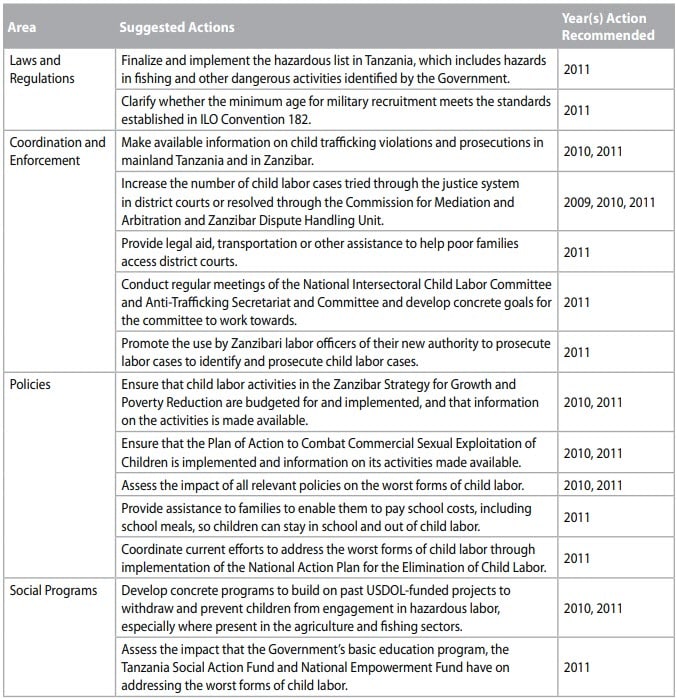
For more articles related to the Economy of Tanzania click here!

























